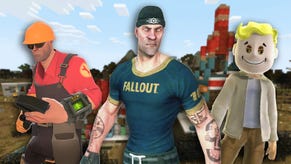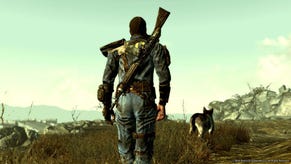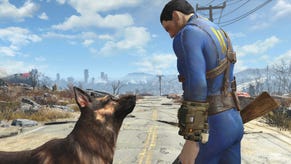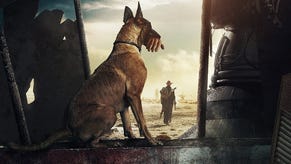Fallout 3
Pete Hines on Bethesda's post-apocalyptic opus.
Fallout 3 is a game that many, many people have been praying for since the nineties. In Leipzig last week, we were given another chance to see the very first demo of Bethesda's interpretation of this beloved universe (for details, see John Walker's preview), and it was no less impressive the second time around - gorgeous, violent and extremely faithful to the series' legacy, it was a personal game of the show by a long, long way. At the end, people clapped, and we're talking Europeans here, not our considerably more effervescent American counterparts. Pete Hines, Bethesda's VP of Public Relations, was kind enough to sit down for a chat afterwards about the difficulties of working with such a revered franchise, and Bethesda's approach to the challenge.
Well, first of all you've got to understand that back in 2004, we sort of had to let everyone know that we had acquired the rights [to the Fallout license], and that's very different than saying we're actually making the game. When we announced Oblivion, we'd had it in development for a long time and nobody knew about it, so we could say "here's Oblivion, here's what it looks like". Here, we sort of said "We've got this license and we're going to start working on it," but we didn't have anything to say or show. We really like to wait until we get to a point where we feel like we can give folks a good sense of what we're doing, and not just talk about it, because you can talk about anything; if we'd just said "Yeah, we're going to do this VATS [Vault-Tec Assisted Targeting System] thing," then people would have been like "Well how does that work?" It's tough to explain - it's much easier to go "Look, THAT's how it works".
It's really important for us to be able to do proof of concept stuff - here's how it's going to play, here's what it's going to look like, here's all that stuff - as opposed to just talking about it. And things change for us. Things will change all the way through development, but they really change during the early part, where you're still ripping things out and sticking stuff in - we wanted to get through that stagee before we showed it.
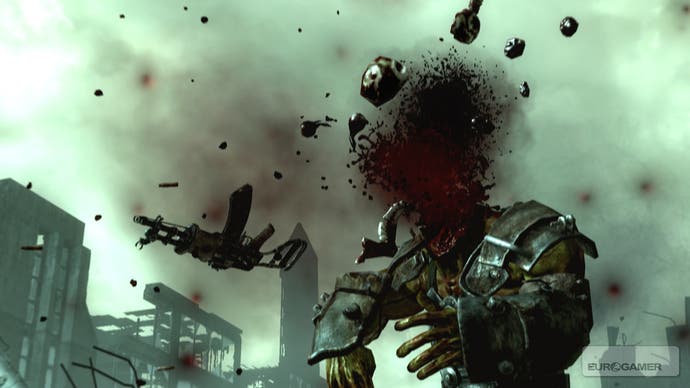
Certainly. We feel like slightly over a year [before release] is about right for us. Certainly with Fallout, we felt like it was time, and we had the game at a point where we could show folks and they'd get it - everyone kept asking us about it, so we thought "Why don't we go ahead and let everybody see what it's like, and then they'll know?". Three years out [from release] would have been a bit far, but now all everyone has to do is get through this holiday, and then we can start warming up - it'll be practically here!
That's honestly how it happened. It was just us sitting around talking about doing something else besides the Elder Scrolls, something RPG-ish, and wondering, what could we do? We had discussions and agreed collectively - seeing as nobody's doing anything with it, if we could get Fallout, we would love to do a Fallout game, because it's both very different from Elder Scrolls and something that a bunch of us really loved as a game and thought we could do well as a franchise. We were sitting there thinking we wanted to play another Fallout game, and if nobody else was going to make one then we might as well do it ourselves. So we did; we went up to our president and our senior management and said, look, can you guys make this happen? And they knew some folks at Interplay and had conversations and worked out how to get it. We're very excited and honoured to be carrying on this franchise.




